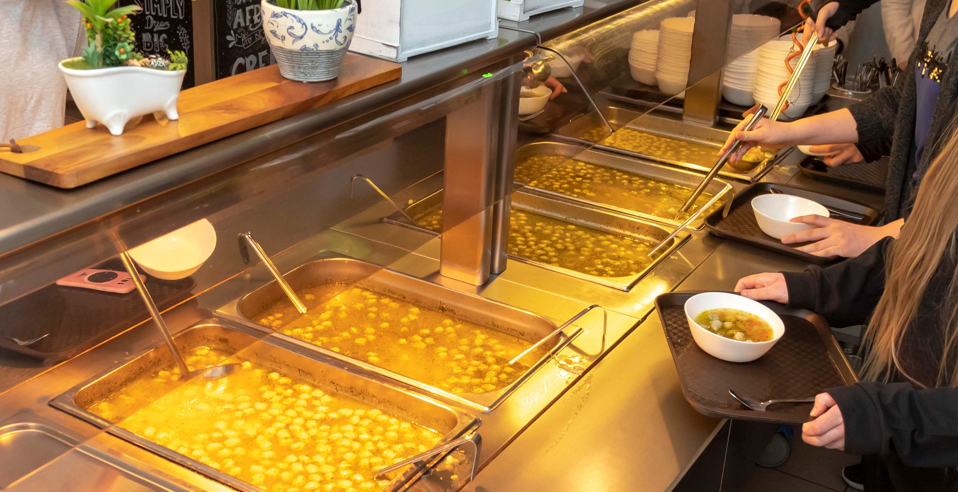Tallinn participates in EU project for healthier school meals
Tallinn City and Viimsi Parish, together with the Stockholm Environment Institute (SEI) Tallinn Centre, are participating in a project involving partners from 12 countries to make school meals healthier and more environmentally friendly for children in Europe.
The SchoolFood4Change (SF4C) project will involve 3,000 schools, more than 600,000 school children across Europe and 16 local authorities, including Tallinn and Viimsi, between 2022 and 2026.
The initiative was presented to schools in Tallinn on Thursday, after which every school in the city will have the opportunity to apply to be part of the project. The project plans to develop, test and try out a range of innovative solutions in cities and pilot schools across Europe, including in Tallinn and Viimsi.
According to Tallinn Deputy Mayor Vadim Belobrovtsev, caterers have a key role to play in making school meals more sustainable. “In addition to the contribution of schools, it is certainly important to involve caterers in every way possible,” Belobrovtsev said. “It is good that many innovative caterers have already started to recognise the importance of sustainable school meals. The training and guidance materials for chefs and kitchen staff that will be developed during the project will undoubtedly be important to ensure that in the future all caterers will be able to offer school meals that are both tasty and environmentally friendly.”
The project will focus on the food system as a whole, including the creation of sustainability criteria for catering procurement, the promotion of healthy and environmentally sustainable food consumption and preparation, as well as the development of an entire school food culture framework. This will bring together all the actors involved in school meals: from pupils, parents and teachers, farmers, caterers and chefs to sustainable food procurement experts, nutritionists and local businesses.
According to Evelin Piirsalu, Senior Expert at the Stockholm Environment Institute Tallinn Centre, the new school food culture framework means that the topic will be considered much more broadly than just school meals. “It is very important to pay special attention to the quality of food, the integration of food-related topics into the curriculum, and cooperation between the different actors in the food system, including students, parents, businesses and local farmers. At the heart of this process is the procurement of sustainable and healthy school meals,” explained Piirsalu.
SEI Tallinn’s role in the SF4C project is, among other things, to lead the development of sustainable school food metrics and environmental impact methodologies and to map the situation in partner countries.
By the end of the project, schools, local authorities and school caterers could have a clearer idea of the direction school food should take to ensure that it is healthy for children and, at the same time, causes as little damage as possible to the environment.
The project is funded by the EU’s Horizon 2020 research framework programme.

